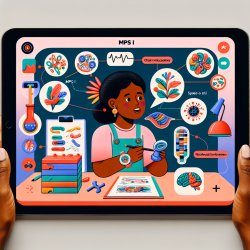Introduction
The COVID-19 pandemic has profoundly impacted educational systems worldwide, with psychiatry residency programs being no exception. The study titled "Current curricular trends after the COVID-19 pandemic: A national survey of psychiatry residency programs" provides valuable insights into how these programs have adapted to the challenges posed by the pandemic. This blog aims to explore the key findings of this study and suggest ways practitioners can enhance their skills and improve educational outcomes for their residents.
Key Findings from the Study
The study surveyed program directors from accredited psychiatry residency programs across the United States to assess changes in educational content, delivery, and perspectives. Here are some significant findings:
- Shift to Virtual Learning: A remarkable 98.5% of programs integrated virtual learning post-pandemic, compared to just 3% pre-pandemic.
- Didactic Content Changes: 60% of programs reported changes in didactic content, reflecting the need for updated educational materials.
- Telemedicine Exposure: 84% of programs increased telemedicine exposure, highlighting its growing importance in medical training.
- Positive Reception: 59.7% of programs viewed the use of virtual educational platforms positively, with some programs transitioning to hybrid models for didactics and grand rounds.
Implications for Practitioners
The study's findings underscore the importance of embracing innovative educational methods to enhance psychiatry residency training. Here are some actionable steps practitioners can take:
- Adopt Hybrid Learning Models: Combining virtual and in-person learning can provide a balanced approach, leveraging the strengths of both modalities.
- Enhance Telemedicine Training: With telemedicine becoming a staple in healthcare, incorporating it into residency training can better prepare residents for future practice.
- Focus on Wellness: Despite the pandemic, 67% of programs reported no change in wellness days. Prioritizing resident wellness is crucial for maintaining mental health and preventing burnout.
- Utilize Data-Driven Decisions: Continuously assess the effectiveness of educational adaptations using data to ensure they meet learning objectives and improve outcomes.
Encouraging Further Research
While the study provides valuable insights, further research is needed to evaluate the long-term effectiveness of virtual and hybrid learning models in psychiatry residency training. Practitioners are encouraged to engage in research initiatives to explore these educational innovations and their impact on clinical competency.
Conclusion
The COVID-19 pandemic has accelerated the adoption of innovative educational methods in psychiatry residency programs. By embracing virtual and hybrid learning models, enhancing telemedicine training, and prioritizing wellness, practitioners can improve educational outcomes and prepare residents for the evolving landscape of healthcare. As we continue to navigate these changes, it is essential to rely on data-driven decisions and further research to ensure the effectiveness and sustainability of these educational adaptations.
To read the original research paper, please follow this link: Current curricular trends after the COVID-19 pandemic: A national survey of psychiatry residency programs.










